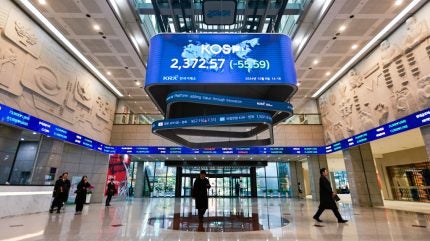
South Korea has lifted its ban on short selling, which began in November 2023 after authorities said investment breaches created an unfair environment for retail investors. Some analysts hope it will attract foreign investors back to South Korea after the political turmoil of last December and January scared some investors away.
Short selling strategies – investing in stocks with the aim of making a profit from a falling share price – are popular with hedge funds and global investment banks. Their return could boost liquidity in the Korea Composite Stock Price Index (KOSPI) and help the country graduate from emerging to developed status in MSCI’s classification.
Previously, MSCI said in a statement that the short selling ban “introduces market accessibility restrictions […] While this ban is expected to be temporary, sudden changes in market rules are not desirable.”
Firms such as Pictet Asset Mangement and Amundi SA have said they planned to increase investment in the KOSPI once the ban was lifted.
“We see the lift of short-selling ban as an upside catalyst for Kospi, as we expect the lift would lead to an increase in market liquidity by foreign investment,” Citi analysts said in a note to Bloomberg.
Since September 2024, foreign investors have sold off 27.7trn won ($19.1bn) in the Korean market, marking the third-longest foreign selling streak since the 2008 financial crash. Between late December and early January, South Korea was embroiled in one of its worst democratic crises in history when former President Yoon Suk Yeol imposed martial law. He was impeached soon after.

US Tariffs are shifting - will you react or anticipate?
Don’t let policy changes catch you off guard. Stay proactive with real-time data and expert analysis.
By GlobalDataWhile previous bans have mostly been geared towards stabilising financial markets, the November 2023 ban was implemented to protect retail investors from regulatory breaches such as naked short selling. The practice entails selling shares without borrowing them first and will remain illegal after the ban. Since the ban, global banks such as Citi and Barclays have been investigated and fined by Korean authorities for breaching short selling rules.
An electronic monitoring system to detect these breaches will be put in place as part of the end of the ban.
Previous short selling bans took place in 2008 during the global financial crisis, in 2011 during the Eurozone debt crisis and in 2020 during the Covid pandemic.



